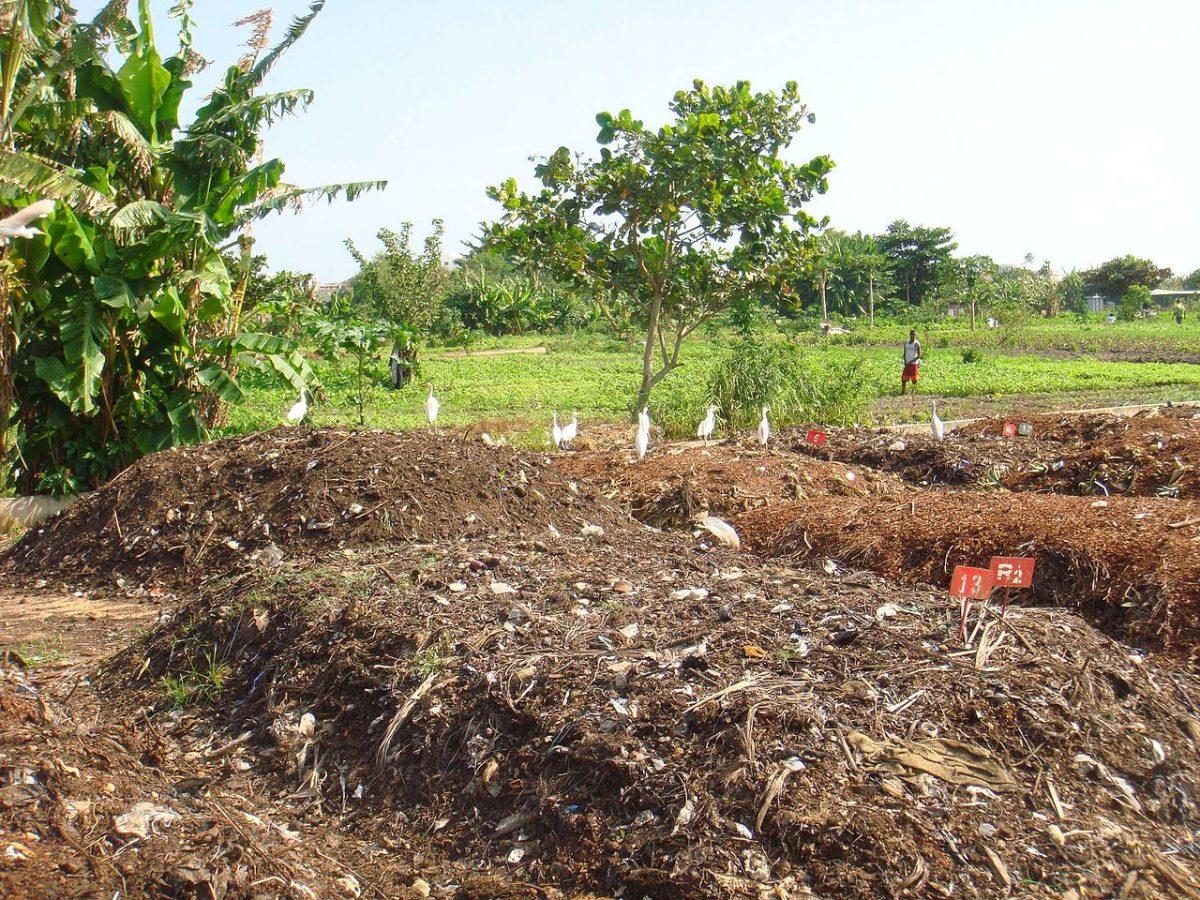Convenient composting has finally arrived at the doorsteps of Sonoma State University students.
Under a new composting program, students who live on campus and have a kitchen can sign up to receive a compost waste bin and bags. 100 kits were provided by JUMP as a starting point, and around 50 of these have already been claimed.
Those who live off campus or do not have a kitchen in their dorms still have ways to compost at Sonoma State. Students may purchase their own biodegradable bags and leave their compost in specially marked bins near the Sauvignon and Beaujolais villages. All compost will then be taken to the campus garden and returned to the earth, where it can yield more produce.
The crops that are grown from the students’ compost can be contributed to NOAH, a food pantry located on Snyder Lane in Rohnert Park.
Jazmine Kary, a fourth-year business and marketing major and JUMP’s director of sustainability, spearheaded this new composting campaign.
“It’s been challenging because it is a new program… but I am seeing a lot of student interest… and it makes it all worth it, makes it very rewarding,” Kary said.
Kary, who has been working on this project for around a year, was responsible for the organization and implementation of the program. She received the $2000 Greenovation grant from the California State Student Association.
According to Kary, the new composting program is an “initiative to get the school to be more sustainable as a whole.”
“Sustainability is important because… [it’s] everyone’s social responsibility to take care of the earth, the environment around them and the community that they live in,” Kary said.
Though there are people who understand the importance of sustainability, Kary said that students are not very educated on the subject and that it is left out of the conversation more than it should be.
Kary acknowledged that education about sustainability is not a one-person job and encouraged others to take up the task of making a bigger effort to live sustainably.
For Peter Forte, a second-year liberal studies major and user of a new composting starter kit, this program holds a lot of importance.
“I can attest to the necessity of having an environment that allows people to be hands-on in their learning experience,” Forte said.
According to Forte, composting has been a part of his life since he was a child. He said it was important to sign up for the program so he can spread this practice and educational opportunity to his roommates.
“Having to reflect on where we dispose our food and what happens to it can be seen as a way to expand our own perspective to think about the larger impacts of waste,” Forte said.
As JUMP’s sustainability coordinator, Forte also gets to have a hands-on experience with the campus garden, where students can volunteer on Mondays from noon to 2 p.m.
“Students will come to understand aspects of growing food and maintaining a garden that can help contribute to their understanding of the cycle of food we eat,” Forte said.
Tremaine Austin-Dillon, residential education coordinator for Residential Life, said the composting program “is a great opportunity to encourage more sustainable practices… so it fell right in line with our vision, our values… I was really excited about it, honestly.”
In addition to this recent push for sustainability, Residential Life has its own ideas for sustainable living. Its STEP Up division is a relatively new sustainability-driven development.
STEP Up’s goals are “a commitment to sustainability and looking at water and energy… responsible consumerism, and resource stewardship,” according to Austin-Dillon.
Residential Life utilizes its own program in conjunction with Kary’s project to teach students.
“[We] want to empower residents to be [more sustainable people] beyond just when they’re in school… that’s the hope, is that they don’t just stop from living on campus but they learn sustainable practices forever,” Austin-Dillon said.
Another way Residential Life encourages sustainability is through competitions. There is currently a competition called Ban the Bottle, which urges students to use reusable water bottles instead of plastic, store-bought bottles.
Students residing on campus who use reusable bottles may be entered in the competition for a chance to win prizes from now until Oct. 20.
Austin-Dillon said that for people to be sustainable, they need to have a conscious understanding of their impact on the world and must develop healthy, environmentally friendly habits.
By initiating this composting program, Kary said she has opened the discussion about sustainability, since the program offers students the chance to see the cause and effects of their actions.
Kary said she hopes the idea of composting and sustainable practices continue to proliferate throughout Sonoma State.
“We’re trying to make students know that composting is a thing and that it can be part of our culture and routine,” Kary said.
For more information about getting involved or if you have questions regarding this program email jump.sustainability@sonoma.edu.
For more information about the STEP Up program go to https://web.sonoma.edu/reslife/sustainability/index.html.



































